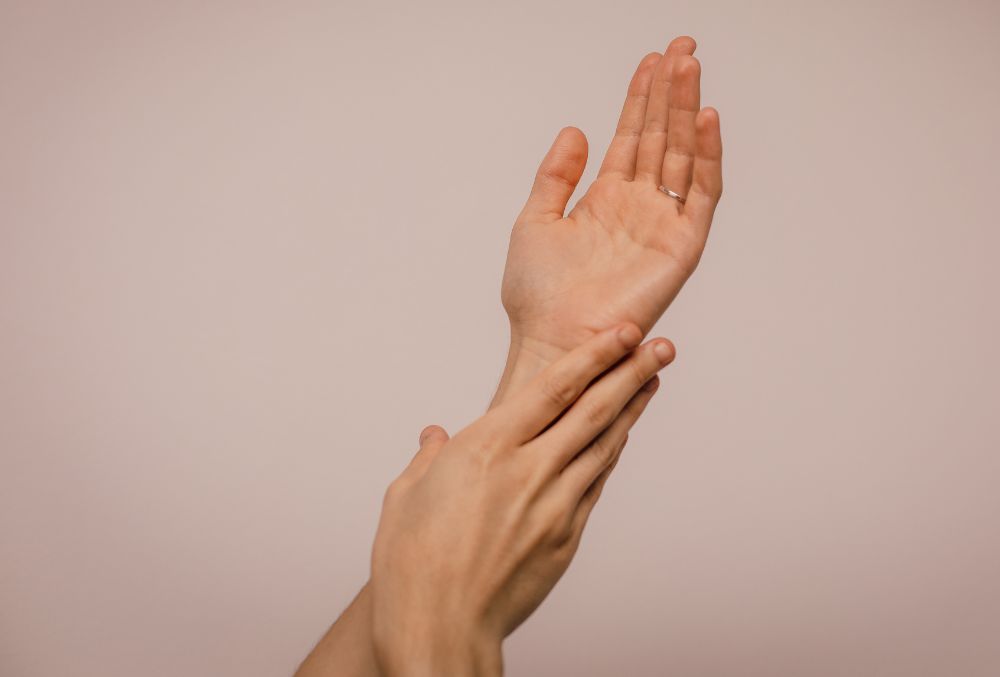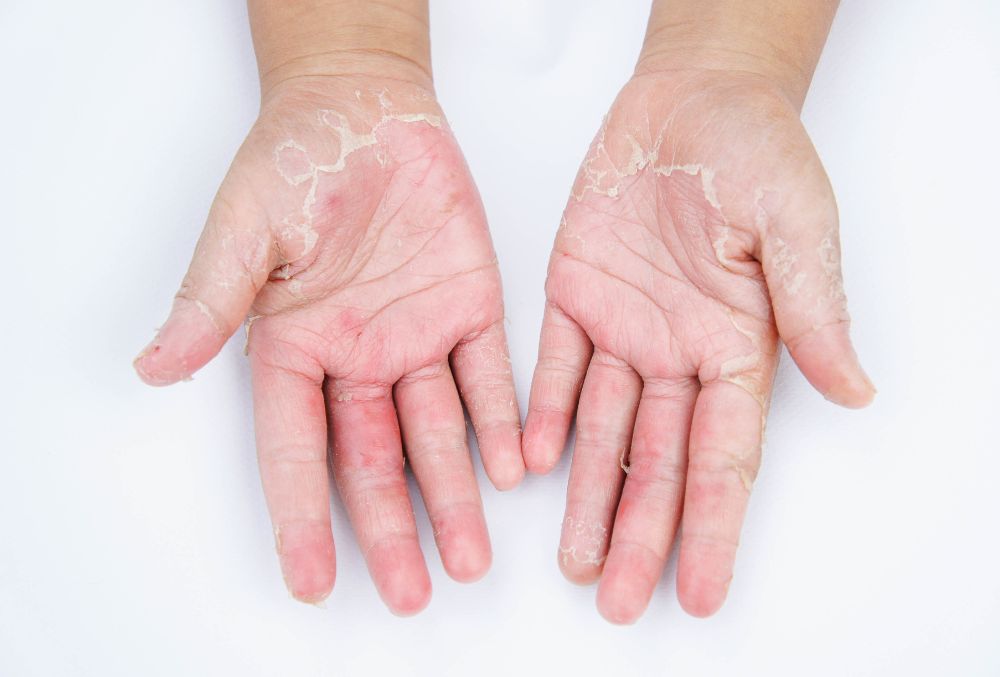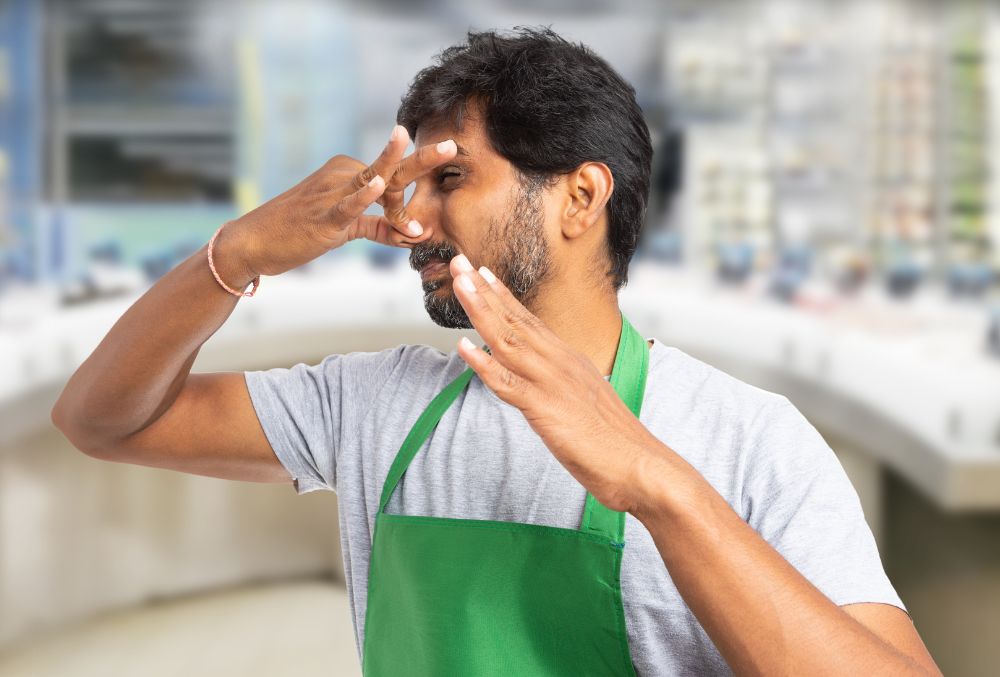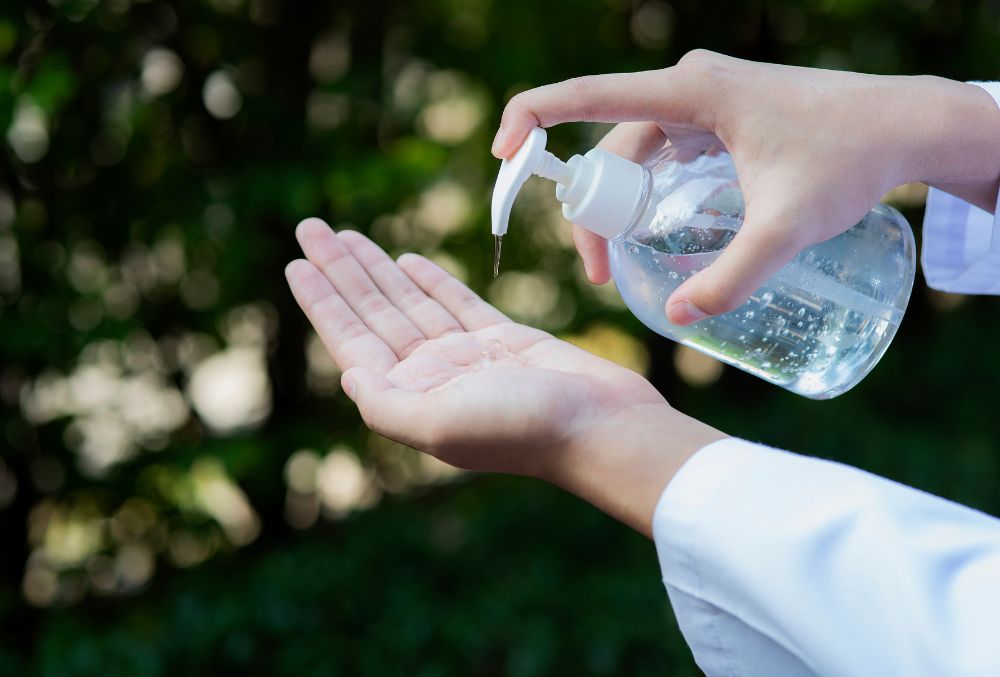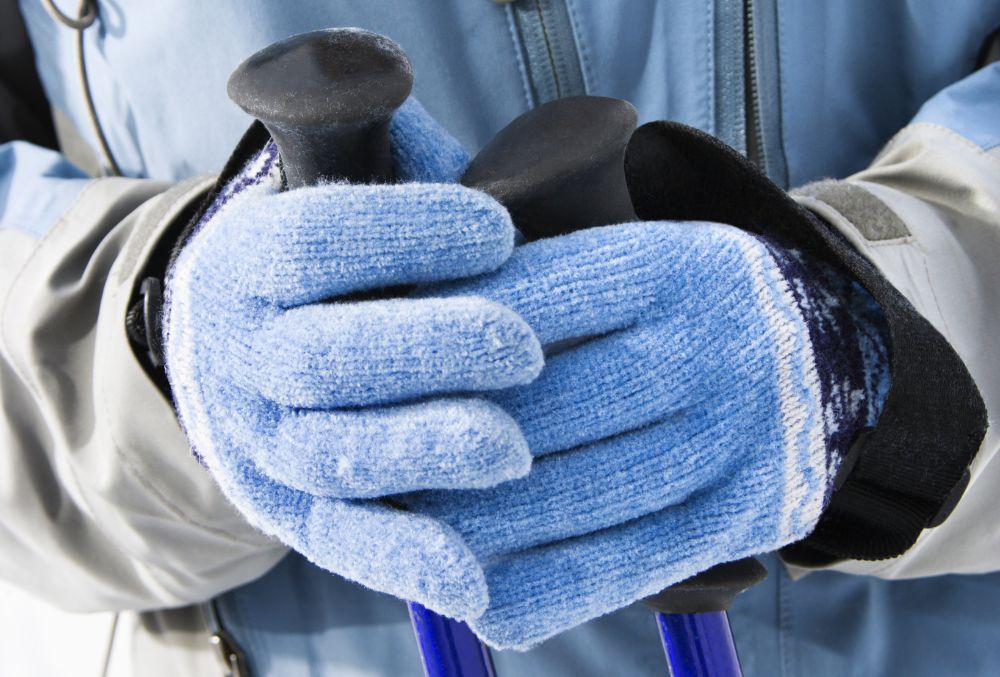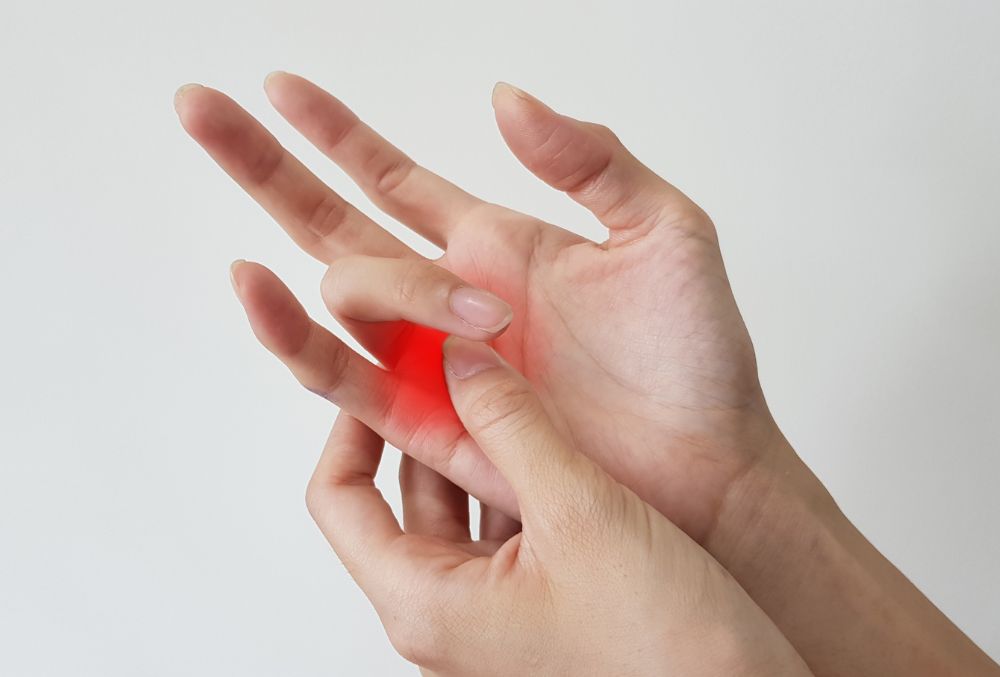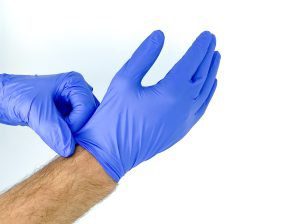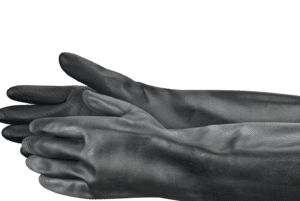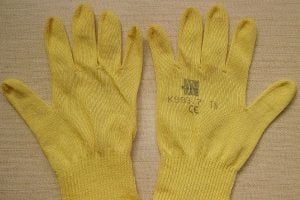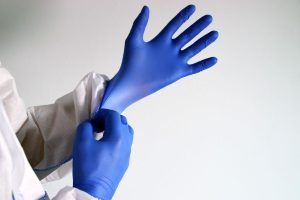Hand protection is a crucial personal protective equipment (PPE) type. There are many different types of gloves, and each material offers the best protection in a particular setting.
The estimated size of the global disposable glove market in 2022 was USD 12,306.0 million. From 2023 to 2030, it is anticipated to expand at a CAGR of 3.9%. With the ongoing COVID-19 pandemic and rising awareness of healthcare-associated illnesses, the market is anticipated to rise due to the rising need for disposable gloves, particularly from the healthcare sector.
Vinyl gloves are a cheap alternative to latex or nitrile gloves, albeit they can be more suitable in low-risk circumstances. Latex, nitrile, vinyl, and nitrile blend gloves are just a few of the PPE products suitable for medical use.
What are the Different PPE Glove Materials?
Personal protective equipment gloves come in four different varieties. Each has unique advantages but is not entirely interchangeable in every situation. Choosing the right glove for the right situation is crucial for job safety.
Latex Gloves
The sort of gloves that healthcare personnel commonly use are latex gloves, which are manufactured of medical-grade natural rubber. Latex gloves are safe for surgical operations with a higher risk of exposure because they provide high levels of protection against bacteria and pathogens.
Nitrile Gloves
Pure nitrile gloves are the best alternative if you can’t use latex because of allergic reactions. Nitrile is a synthetic rubber and offers a chemical-resistant, puncture-resistant glove that is a popular, albeit more expensive, choice.
Nitrile Blend Gloves
This nitrile and vinyl glove mixture provides a more affordable option than pure nitrile. Despite being less robust, they have many pure nitrile glove protective properties.
Vinyl Gloves
Workers in the hotel sector and the food service business frequently choose vinyl gloves. They are inexpensive disposable gloves that offer a momentary protection barrier in low-risk circumstances. Despite being less effective than nitrile or latex, Vinyl gloves offer good pathogen protection.
Vinyl Gloves: Frequently Asked Questions
What are Vinyl Gloves?
Vinyl gloves are created from a synthetic polymer mixed with plasticizers and PVC, a type of additive called polyvinyl chloride, just like neoprene and nitrile gloves. Vinyl gloves are, therefore, safer if you or your patient has a latex allergy but are occasionally less strong than latex gloves.
It is less usual or unlikely for this kind of glove to induce skin allergies. People who complain of skin irritability while wearing vinyl gloves may suffer from inadequate ventilation and perspiration.
Contact urticaria is the term for this brief and mild rash. Vinyl gloves can withstand water. Thus, they are unventilated and cannot be worn for an extended period.
Wearing fabric liners made of sweat-absorbing material will let you easily prevent this.
Vinyl gloves have minimal protection and are less flexible. Stretching vinyl gloves compromises their protection because the molecules are also stretched.
These gloves are best used for brief periods in non-hazardous situations and tasks. Vinyl gloves are so frequently used in preparing and manufacturing food and beverages. They are the finest option for residential and business use, requiring frequent use and replacement.
Disposable medical vinyl gloves also defend against low-risk liquids, body fluids, colors, and detergents. Doctors or other medical professionals who lack latex or nitrile gloves can use vinyl gloves for low-risk tests.
However, their low cost and anti-static features are vinyl gloves\’ main benefits.
What type of gloves do doctors use?
Doctors frequently use latex and nitrile gloves.
Longer than other types of gloves, many clinicians have used latex gloves. Natural rubber latex is a readily available and naturally occurring substance. They are adaptable, strong, and comfortable to wear. If neither you nor your patient has a latex allergy or sensitive skin, that is.
The following justifies the widespread usage of latex gloves by dentistry and medical professionals:
Superior dexterity and comfort: Medical-grade latex gloves are ideal for medical and surgical operations since they don\’t interfere with the doctor\’s ability to feel and touch.
Chemical resistance: Latex typically resists chemicals like iodine, chlorine, and formaldehyde, as well as bases, acids, and chemicals.
Puncture resistance: Depending on their thickness, heavy-duty latex gloves offer puncture resistance and last longer.
FDA approved: All PPE, including latex gloves, are approved and regulated US FDA.
While nitrile gloves offer superior comfort and puncture resistance, you won\’t need to buy powdered versions, which are simpler to remove. Synthetic rubber nitrile is stronger and more resilient than latex.
The following are some advantages of nitrile gloves for dental and medical applications:
Excellent pathogen defense: Surgical gloves made of nitrile are thicker and offer superior defense against pathogens in bodily fluids, blood, or liquid.
Better puncture resistance: Nitrile gloves can withstand punctures up to four times longer than latex gloves.
Comfortable to wear: These disposable surgical gloves are more comfortable and can be left on for several hours.
High tactile sensitivity: These medical gloves won\’t compromise the wearer\’s sense of touch and dexterity.
Bottom Line: Can Vinyl Gloves Replace Latex and Nitrile Gloves for Medical Use?
Vinyl medical gloves are not as strong, pleasant, or thick. However, some dental and medical experts still favor utilizing them in some situations and settings. Here are several justifications for why dentists and doctors continue to use vinyl gloves.
Vinyl Gloves are Affordable.
One of the world\’s most widely produced plastic materials, PVC, is required to make vinyl gloves. Therefore, Vinyl gloves are the most economical and practical option.
Vinyl gloves should be ordered in large quantities if you wish to save more money.
Vinyl Gloves avoid Latex Allergy.
Vinyl gloves are free of latex. Although hardly many people have latex allergies, it is nevertheless best to take extra measures as a dental and medical professional. A better choice is to use gloves without latex.
If you or your patient develops rashes, skin irritations, or inflammation while wearing latex gloves, you should take the gloves off and thoroughly wash your hands.
Vinyl Gloves provide Pathogen Protection
Vinyl gloves can offer pathogen protection from liquids, blood, or bodily fluids for a brief period due to their lack of excessive thickness or durability. Vinyl gloves are, therefore, perfect for quick procedures or inspections. In examination applications, there is little to no direct physical contact with microorganisms from liquids.
If you are wearing vinyl gloves and come into contact with blood or bodily fluids that contain germs, take off your gloves, wash your hands thoroughly, use alcohol or sanitizer on your hands, and put new ones on.


